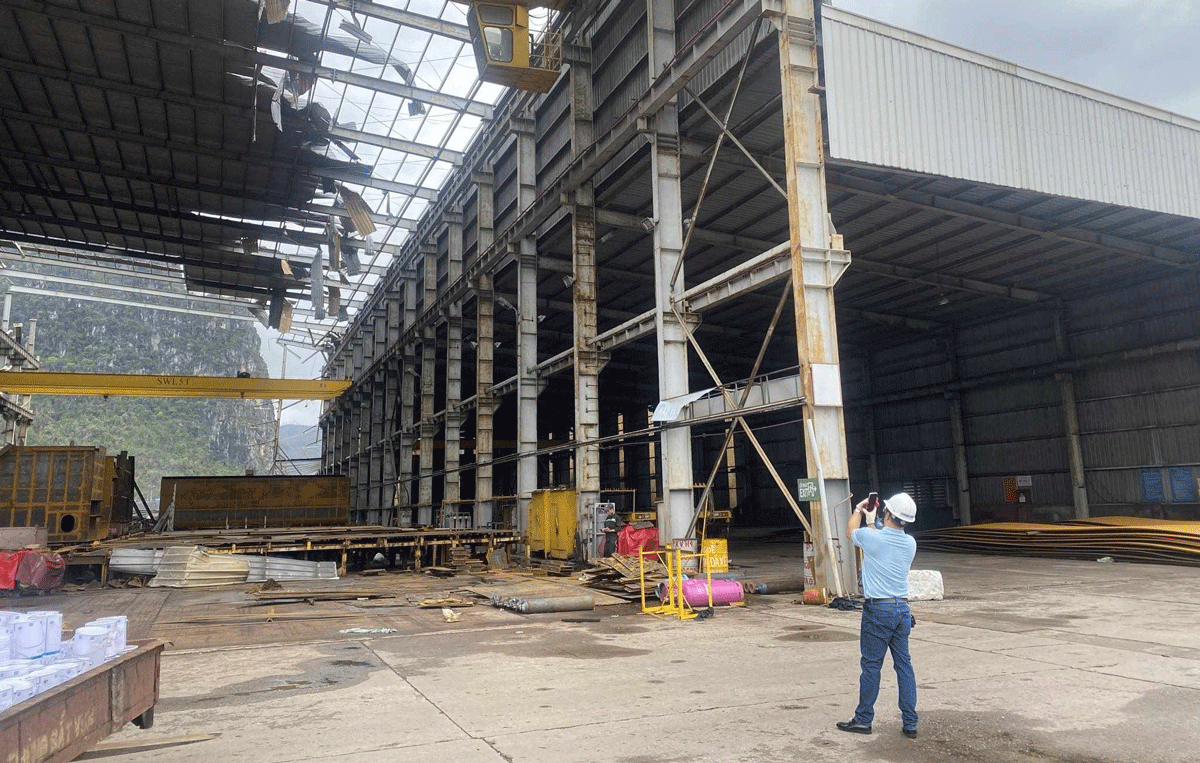
Insurers have reported that they have received thousands of claims for cover damages to houses, vehicles, and production facilities after the typhoon and they have quickly activated the system of appraising losses and dealing with insurance claims.
PVI JSC has announced that the total value of claimed losses had reached VND3 trillion as of September 23, an increase of VND1 trillion over the updates on September 11.
As of September 23, PVI had recorded 751 claims in property insurance, motor vehicle insurance and personal lines insurance. The insurer has begun paying compensation in advance to policyholders. However, it is difficult to assess damages, especially in non-life insurance, because of the terrible devastation of the typhoon.
In the stock market, the prices of PVI shares have decreased slightly from VND47,000 per share on September 6 (before Yagi made landfall in Vietnam on September 7) to VND45,000.
The mild price decrease is explained by the fact that the German insurer HDI global SE has registered to buy 2.95 million shares more right after the typhoon (September 12) and carried out transactions to buy 2,775 million shares on September 18.
With the average PVI price of VND45,000 per share on September 18, the German insurer had to spend VND125 billion for higher ownership ratio at PVI.
With the transactions, HDI Global SE has raised its ownership ratio in PVI to 99.15 million units, or 42.33 percent.
Meanwhile, Funderburk Lighthouse Limited, a related shareholder, is still holding 29.5 million shares, or 12.6 percent. As such, German investors are holding 128.7 million PVI in total, equal to 54.94 percent of the Vietnamese insurer. Prior to that, on September 9, HDI Global SE bought 161,600 PVI shares.
HDI Global SE is known as a business where the German insurance group Talanx is holding 100 percent of charter capital. HDI Global SE holds the controlling stake at PVI Holdings, the company that owns 100 percent of PVI shares.
After one of week of decreased prices following typhoon Yagi, insurance share prices recovered and the current market prices are just 3-7 percent lower than that in the pre-typhoon period.
Before the typhoon, on September 6, BVH shares of Bao Viet Group were traded at VND44,800 per share, which later dropped to VND43,300 per share on September 26, a decrease of 3.3 percent. Bao Viet estimated that the compensation for damages in Yagi had reached VND955 billion as of September 18.
Meanwhile, PTI shares of the Post and Telecommunication Joint-Stock Insurance Corporation, in the last 10 trading sessions, have witnessed price increases in the last five sessions and prices stabilized in the last three sessions. On September 26, shares were traded at VND32,500 per share, higher than the VND30,600 per share on September 6.
Insurance companies have large provisions against risks. As of the end of the second quarter of 2024, PVI had provisioned VND15.900 trillion.
PTI has estimated that the compensation for Yagi-caused damages is total VND200 billion. As of the end of the second quarter 2024, PTI had provisions of VND4.082 trillion.
Insurers in Vietnam have faced difficulties over the last one and a half years. Life insurers have seen profits and sales decrease as Investment linked Insurance Products (LPs) no longer sell easily.
The Law on Insurance Business which took effect in early 2023 and Circular 67 dated late last year lay down very strict policies with an aim to protect the benefits of insurance policy holders.
Non-life insurance has recovered slowly as it was affected by the turmoil last year when policyholders complained they were cheated in choosing life insurance policies.
However, some insurers reported positive recovery in the second quarter 2024. PVI’s profits in the first six months of the year increased by 40 percent over the same period last year. BIC has also reported a similar growth rate, while PTI profit grew by 8 percent.
The Vietnamese insurance market still attracts foreign investment. While other insurance markets have stopped growing, there are big opportunities in Vietnam, as its economy is still in an early development period.
Manh Ha